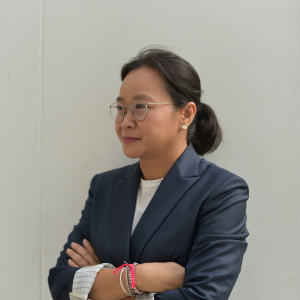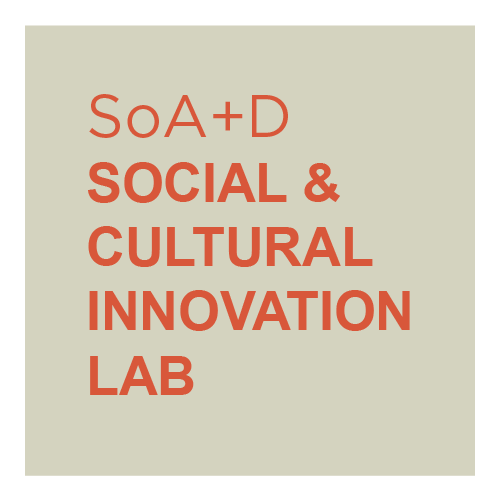
Rethink Business Souvenirs
One of KMUTT’s core business visions is to be a forefront technology and research organization, dedicated to communities. With its corporate culture and traditional background, KMUTT graduates and professors are hands-on and practical, creative and professional; and strive to be a role model for societal-change educators and innovators.
These attributes can become a set of keywords for guiding what should be selected as KMUTT’s business souvenirs. This paper examines the social values of KMUTT’s business souvenirs, in how it represents the organization’s vision and identity. It also investigates the use value, exchange value and social value of two of KMUTT’s business souvenirs in how they can be perceived, and if the receivers perceive the messages according to the intention.
The two KMUTT souvenirs that have been chosen to be investigated in this paper are: the Nagnoy -Poneplaloh textile crafts, and up-cycled crafts from the inflow-dialysis solution bag. The Nagnoy -Poneplaloh textile crafts are distinct in their pastel-color natural-dye and ikat woven technique. The woven fabrics were then turned into multipurpose bags in a shape that is reminiscent of a villagers’ traditional bag. When the woven fabric souvenirs are introduced with the communities’ narratives, receivers can affiliate themselves to the makers, to the lives and situation of the people who made them, and hence, see the sign value of the great intention of KMUTT’s vision, an institution dedicated to society. Though woven fabric souvenirs do not overtly emphasize KMUTT’s science and technology research, they do hint that life sciences are intrinsically intertwined in the woven fabric products.
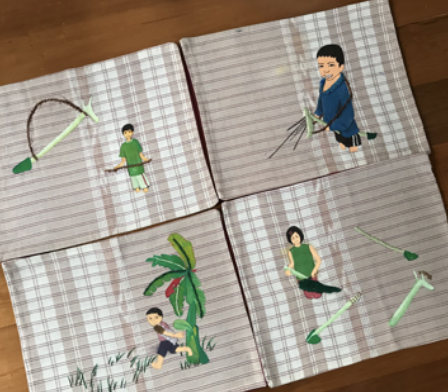
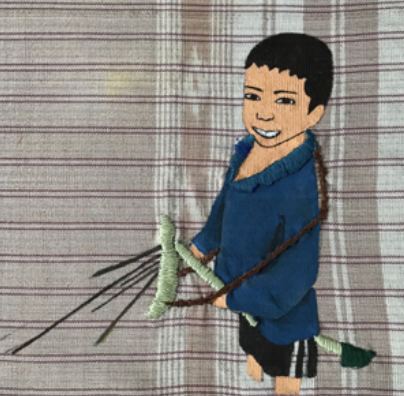
(Source: KMUTT Social and Cultural Innovation Lab, 2014)
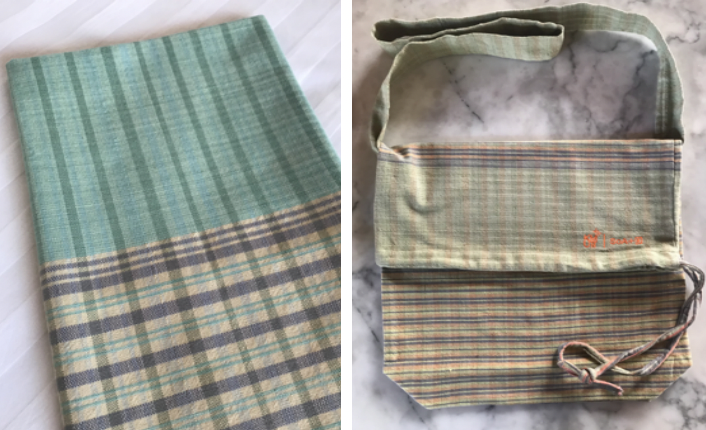
(Source: KMUTT Social and Cultural Innovation Lab, 2014)
For the up-cycled crafts from the inflow-dialysis solution bag, KMUTT collaborated with the Kidney Disease Patient Association in creating a platform for CAPD patients to collect and sell their dialysis solution pouches for extra income. Lecturers and researchers from various disciplines then developed an up-cycled version of the polyvinyl stationery pouches. The up-cycled pouches were given out to guests with small leaflets describing the severity of kidney disease situations in Thailand, as well as an introduction to their eco design. The mediating process of the pouches, from the CAPD patients to KMUTT and from KMUTT to the receivers, suggests social value, equity and sustainability.
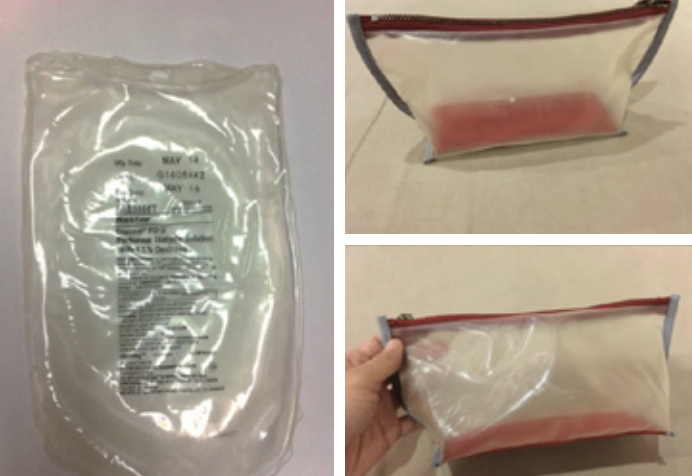
(Source: KMUTT Social and Cultural Innovation Lab, 2016)
In conclusion, the hand-woven fabric and the up-cycled pouch souvenirs have different and unique sign values. Hand-woven fabrics have a strong sign value in terms of cultural background, which focuses on the creators’ geographical location, their tropical rainforest, and biodiversity. The up-cycled pouch presents its strong sign values mainly in equity, self-reliance and sustainability. A unique concept of how souvenirs are produced and made, together with stories of people who made them, are keys to increase the sign values of the objects. Especially when researchers from an educational institute work hand in hand with local craftsmen, the sign and social values will be emphasized and extended. While the sign and social values of the objects allow the receivers to emotionally connect themselves to the unique place, people, and memory; the use and exchange values of the objects can increase the satisfaction and enjoyment of the receivers as well, but are not essential components for business souvenirs.
For more information :
https://soad.kmutt.ac.th/wp-content/uploads/2020/09/60_25_On-Physical-University_eboook.pdf
SCI: Social and Cultural Innovation Lab
One of KMUTT’s core business visions is to be a forefront technology and research organization, dedicated to communities. With its corporate culture and traditional background, KMUTT graduates and professors are hands-on and practical, creative and professional; and strive to be a role model for societal-change educators and innovators.
These attributes can become a set of keywords for guiding what should be selected as KMUTT’s business souvenirs. This paper examines the social values of KMUTT’s business souvenirs, in how it represents the organization’s vision and identity. It also investigates the use value, exchange value and social value of two of KMUTT’s business souvenirs in how they can be perceived, and if the receivers perceive the messages according to the intention.
The two KMUTT souvenirs that have been chosen to be investigated in this paper are: the Nagnoy -Poneplaloh textile crafts, and up-cycled crafts from the inflow-dialysis solution bag. The Nagnoy -Poneplaloh textile crafts are distinct in their pastel-color natural-dye and ikat woven technique. The woven fabrics were then turned into multipurpose bags in a shape that is reminiscent of a villagers’ traditional bag. When the woven fabric souvenirs are introduced with the communities’ narratives, receivers can affiliate themselves to the makers, to the lives and situation of the people who made them, and hence, see the sign value of the great intention of KMUTT’s vision, an institution dedicated to society. Though woven fabric souvenirs do not overtly emphasize KMUTT’s science and technology research, they do hint that life sciences are intrinsically intertwined in the woven fabric products.


(Source: KMUTT Social and Cultural Innovation Lab, 2014)

(Source: KMUTT Social and Cultural Innovation Lab, 2014)
For the up-cycled crafts from the inflow-dialysis solution bag, KMUTT collaborated with the Kidney Disease Patient Association in creating a platform for CAPD patients to collect and sell their dialysis solution pouches for extra income. Lecturers and researchers from various disciplines then developed an up-cycled version of the polyvinyl stationery pouches. The up-cycled pouches were given out to guests with small leaflets describing the severity of kidney disease situations in Thailand, as well as an introduction to their eco design. The mediating process of the pouches, from the CAPD patients to KMUTT and from KMUTT to the receivers, suggests social value, equity and sustainability.

(Source: KMUTT Social and Cultural Innovation Lab, 2016)
In conclusion, the hand-woven fabric and the up-cycled pouch souvenirs have different and unique sign values. Hand-woven fabrics have a strong sign value in terms of cultural background, which focuses on the creators’ geographical location, their tropical rainforest, and biodiversity. The up-cycled pouch presents its strong sign values mainly in equity, self-reliance and sustainability. A unique concept of how souvenirs are produced and made, together with stories of people who made them, are keys to increase the sign values of the objects. Especially when researchers from an educational institute work hand in hand with local craftsmen, the sign and social values will be emphasized and extended. While the sign and social values of the objects allow the receivers to emotionally connect themselves to the unique place, people, and memory; the use and exchange values of the objects can increase the satisfaction and enjoyment of the receivers as well, but are not essential components for business souvenirs.

